Today’s song
It is hard for us to imagine today, but from the mid-17th century when the English Parliament and New England colonies outlawed the celebration of Christmas, until the mid-19th century Victorian movement to “keep Christmas” took hold, the term Christmas music was associated mainly with songs about seasonal drinking, dancing, leching and carousing.
We already have had an example in this series of that style of music: November 27th’s November Drinking Song. Although it was written only recently it is very much in the style of an eighteenth century Christmas song. Today is an authentic song from a late-17th century broadside, where it has the ungainly title of The Shropshire Wakes, or, Hey for Christmas: Being the Delightful Sports of most Countries (Roud V31804). The song describes exactly the sort of behavior that the Puritans hated, but which they probably exacerbated with their prohibition.
There are two copies of this anonymously-written broadside in the Douce Ballads collection at Oxford University’s Bodleian Library. (The above image is large: You should be able to zoom in if you want, but the lyrics are printed below.) Note that at the end it says: “Printed for Phillip Brooksby, at the Golden Ball, neer the Hospital-gate in West Smith-field.” Broadsides were commonly sold by what we now call buskers. They were equivalent to the way that their modern counterparts sometimes sell self-published CDs.
There were no copyrights in those days. Buskers frequently heard a song they liked in one town, bought a broadside with its lyrics from the singer for a penny, then re-published it in their home towns to sell to their patrons. Such broadsides were the first vehicle by which local songs could “go national” without evolving through the folk process that comes with oral transmission. True folk music is quite different from our current practices, descended from the broadsides era, that often freeze a new composition into a standardized copyrighted version of the original lyrics, setting and arrangement. But that isn’t a rant that I am going to go into in this series. I’ll just say Bah, humbug! (I bet that you’re glad that I didn’t turn that idea into a whole long essay.)
This practice of republishing broadsides is probably the reason that I have not found any source which attributes authorship of this song to Brooksby. On the other hand though, the Bodleian Library includes a number of other broadsides that were printed for Brooksby from 1672 to 1696. My superficial research found that he never claims authorship but the Bodleian appears to have no earlier broadsides for any of those songs. Putting on my amateur folklorist hat I am going to tentatively say that I think Philip Brooksby was a singer-songwriter and that he probably did write this song.
In the broadside, Brooksby sets the song to the tune of Dargason, which was then popular and is in John Playford’s The English Dancing Mater, published in 1651. That source has the following dancing instructions; I don’t understand them, but then I am not much of a dancer:
The song is sung here by Custer LaRue with The Baltimore Consort, recorded in 1994 on their Bright Day Star album. The Baltimore Consort is a six person ensemble specializing in music of the 16th through 18th centuries, and they meticulously perform it on instruments and in styles that are authentic to the time period.
This year, on December 18, Victoria’s Early Music Society of the Islands is bringing them, with soprano Danielle Svanavec, to Victoria for a concert called Wassail, Wassail! Music for the Yuletide Season. As you can guess, I already have my ticket.
Since reading the lyrics from the above broadsheet is a tough slog, here they are (from the liner notes and input help from here) so you can sing-along
Come Robin, Ralph, and little Harry,
And merry Thomas at our Green
Where he shall meet with Bridget and Sary,
The finest young wenches that ere were seen.Then hey for Christmas once a year
Where we have Cakes, both ale and beer
And to our Christmas feast there comes
Young men and Maids to shake their bums.For Gammer Nichols has gotten a Custard
My Neighbour Wood a roasted Pig
Widow Franklin hath beer & mustard
And at the Thatcht house there is good swig.There's a fidler for to play ev'ry Dance
When the young Lads and Lasses meet
With which the Men & Maids will prance
The violer before them down the street.The Morris dancers will be ready
Meat and Drink enough to lade ye
And in a fools dress will be little Neddy
To entertain our Christmas Lady.And when that they shall all appear
That are to be at our brave Wakes
To eat up the Meat, and drink up the Beer
And to play at cards for Ale and Cakes.Then Grace and sweetest Winnifer
And all the Lasses on the place
When that the young men they have met
See how the Devil’s dream they'll trace.They side and then turn ‘round about
And briskly trip it to each other
And when they have danced it out
They presently call for another.Ralph leading up with Sue in 's hand
And Bridget being by Robins side
You'd laugh to see how they do stand
With their heads together and feet so wide.The dance being done the fiddler plays Kissum
Which Dick and Harry soon did so
And Randal the Taylor could not missum
But he must kiss his Partner too.Then they sat down to their good cheer
And pleasant were both Maids and Men
And having dined and drank their beer
They rose and went to dance again.Thus they did dance from noon till night
And were as merry as Cup and Can
Till they had tyred the Fidfler quite
And the sweat down their buttocks ran.Then they went to the little thatcht house
And plaid at Cards a game or two
And with the good Liquor did so carouse
That they made drunk both Tom and Hugh.The rest unto Hot-cockles went
But Neddy gave Nelly a blow too hard
That all together by the ears they went
And all their sporting soon was mar'd.The Pots flew about the glasses were broke
Doll was scaring Mol by the Quife
Richard was pulling John by the throat
At which the Hostess drew her knife.They took the Fidler and broke his pate
And threw his fiddle into the fire
And drunkenly went home so late
That most of them fell in the mire.The men went away and paid ne'r a groat
But left the Maids to pay for their cheer
Betty was forced to pawn her last coat
And Sary to leave her Garget there.And so my merry ballad is Ended
When the Maids come again to these wakes
They'll first see the young lads manners mended
And make them pay for ale and Cakes.
Essay: No essay today – the dog ate my homework [word count 76]
Actually, that’s not quite true: Two nearly complete essays totally got lost from my computer and it took a lot of time for me to moan and groan about it and then re-write them. I don’t blame the computer. It does what it does. I don’t know what I did wrong but I suspect I was doing a cut-and-paste to another document, got distracted, and did another cut before I pasted them. Lesson learned …. I hope.
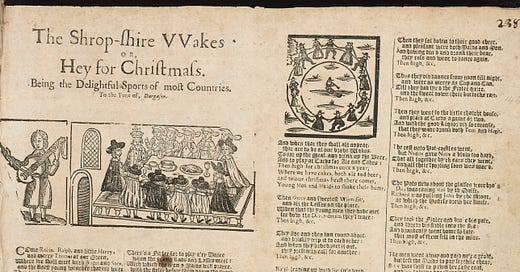






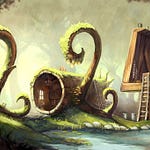


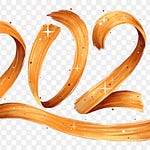

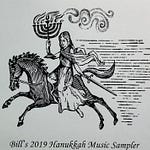
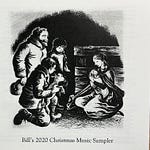

Share this post